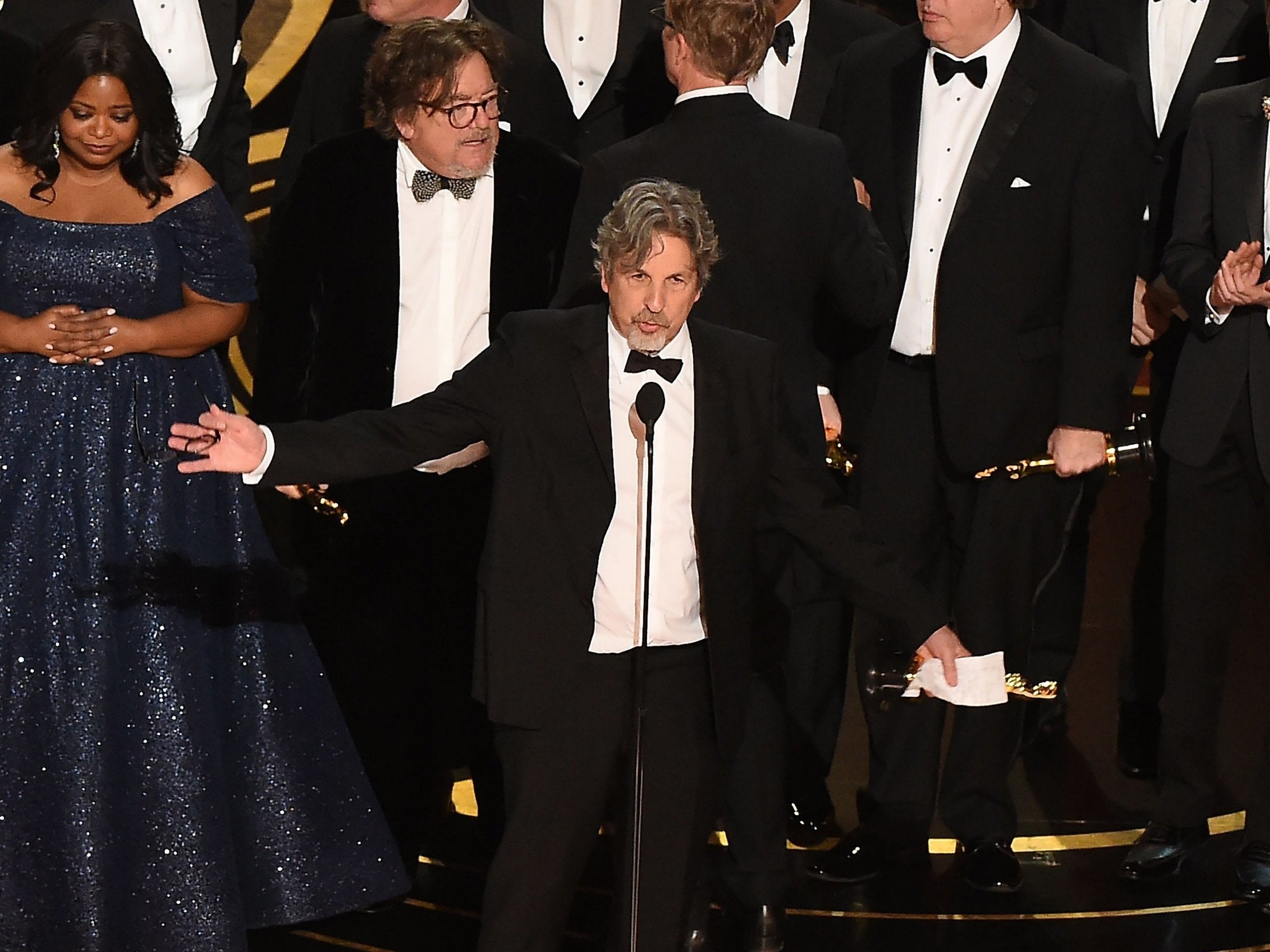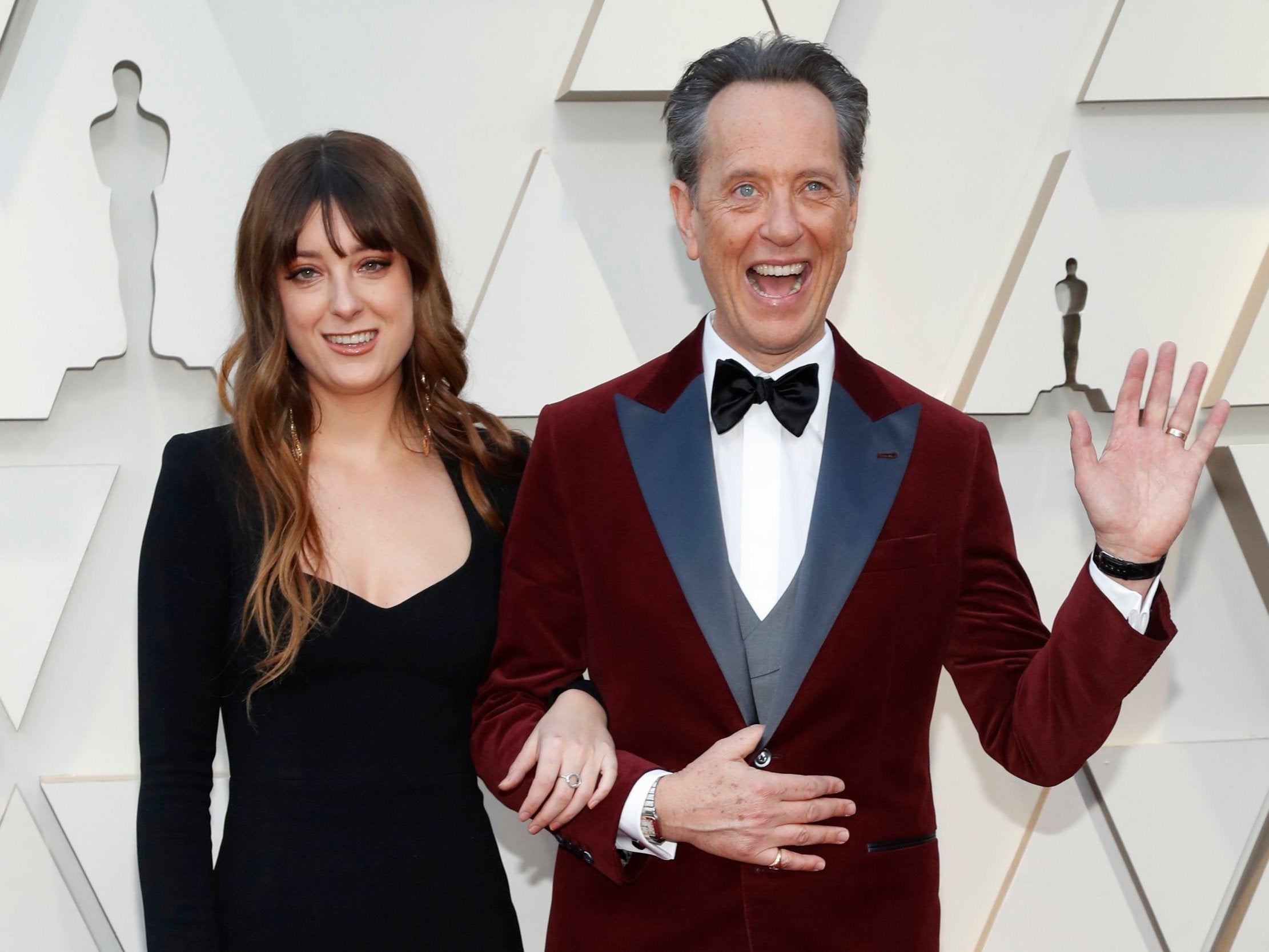Oscars 2019: Five talking points, from Spike Lee storming off to Olivia Colman's touching speech
Green Book's Best Picture victory over Roma has proven controversial
The Oscars ended with two major shocks on Sunday night in Los Angeles, as Olivia Colman took home Best Actress for The Favourite and Green Book won Best Picture.
Colman’s win in the Best Actress category brought Yorgos Lanthimos’s period piece back in the spotlight after being shut out for most of the evening, missing out on its two Best Supporting Actress nominations (for Emma Stone and Rachel Weisz), as well as nods in the Cinematography, Costume Design, Directing, Film Editing, Production Design, and Writing (Original Screenplay) categories.
Green Book, meanwhile, took home the biggest award of the night despite an awards season marred by scandal, and even though it was up against mammoth contenders such as Bohemian Rhapsody, The Favourite, Roma and the extremely popular Black Panther – the first superhero movie to score a nomination in the Best Picture category.
Here are the five biggest talking points from the ceremony.
Green Book disappoints as Best Picture win

This year’s Academy Awards was a tale of two shocks: one pleasant, one dire. The latter arrived with the announcement that Green Book had beaten out the category’s frontrunner, Roma, to Best Picture. It was a dismal reminder that progress is a slow, tedious process. Had Roma prevailed it would have made history, becoming both the first foreign language film and the first film distributed by Netflix (or any other streaming service) to win Best Picture.
It would have been a win that actually felt like the Academy was looking towards the future, smashing through the strict confines that have so far determined what we deem awards worthy and allowing this yearly celebration of film to finally start reflecting how diverse (on every possible level) the art form actually is.
But alas, no. Instead the Academy chose a film that has faced widespread criticism for its use of the “white saviour” trope, since its story of a friendship between two real-life figures – black jazz musician Don Shirley (Mahershala Ali) and his white driver Tony Vallelonga (Viggo Mortensen) – depicted the experiences of black Americans in the segregated South almost entirely through a white perspective.
Crucially, it ignored the realities of racism in order to deliver a neat story about Tony’s redemption as a racist man who learns to become a more tolerant person. Green Book’s win tonight doesn’t feel like much of a victory. It’s more of a case of the same old, same old when it comes to the Oscars. Clarisse Loughrey
Olivia Colman’s Best Actress win is a joyful surprise

It’s a win that many hoped for, but one that not many genuinely expected. Colman beat frontrunner Glenn Close to Best Actress, delivering a delightful (and thoroughly English) acceptance speech to boot. “It’s genuinely quite stressful,” she said. “This is hilarious. I got an Oscar! Okay, I have to thank lots of people. If, by the way, I forget anybody, I’m going to find you later and give you all a massive snog.”
Granted, Close has been wildly overdue when it comes to the Oscars, having failed to win the past six times she’s been nominated – it seems particularly outrageous now that she wasn’t awarded either for 1988’s Dangerous Liaisons and 1987’s Fatal Attraction.
Yet, Colman’s handling of Queen Anne’s various comedies and tragedies in The Favourite soars above any other film performance this year. A figure pathetic, fearsome, and desperate at all moments, Queen Anne is filled with endless conflicting layers, all effortless delivered by Colman. Thanks to Deborah Davis and Tony McNamara’s masterful screenplay, The Favourite was one of the greatest possible platforms for what a unique talent Colman is. Clarisse Loughrey
Richard E Grant wins hearts, even if he doesn't win awards

No one has enjoyed awards season more than Richard E Grant. The 62-year-old star of Can You Ever Forgive Me? was, in his own words, “granted temporary membership to the A-list fame club” after the role earned him an Oscar nomination. Given the adorable viral video he posted in reaction to the nod, the countless selfies with every Hollywood actor he comes across, and the interviews in which he’s grinning ear to ear, it’s clear Grant decided to grab the opportunity with both hands.
He didn’t grab the Oscar, though. That honour, predictably, went to Mahershala Ali for his role as jazz pianist Don Shirley in the somewhat controversial Green Book. Ali is brilliant, of course – just look at his previous Oscar-winning role in Barry Jenkins’ Moonlight – but wouldn’t it have been wonderful if Grant had managed to pull off a surprise victory? This was his first ever nomination, 32 years after he was snubbed for his iconic role in Withnail and I, and he plays Jack Hock – the playful, conniving, antagonistic friend to Melissa McCarthy’s Lee Israel – like no one else could. Alexandra Pollard
Bohemian Rhapsody is ahead of the pack with four wins

Although Green Book walked away with Best Picture, the film with the most wins of the night was Bohemian Rhapsody. It’s news that will also come as a significant disappointment to many. Alongside three wins in the technical categories – for Best Sound Mixing, Best Film Editing, and Best Sound Editing – Rami Malek also picked up Best Actor for his role as Freddie Mercury.
The film, however, has been argued by many to be nothing but a karaoke-style paean to Queen, with many critics picking up on how the film downplays the AIDS crisis of the 1980s - Mercury was diagnosed with HIV in 1986 and died of AIDS-related bronchopneumonia in 1991 - and Mercury’s sexuality. Indeed, the film focuses solely on Mercury’s relationship with Mary Austin (played in the film by Lucy Boynton), leaving his relationship with Jim Hutton (Aaron McCusker), who was with Mercury until his death, as an epilogue untold, leading to accusations that the project “straight-washes” or “de-queers” its subject.
It should be mentioned, crucially, that Academy voters made their decision in the light of the allegations facing Bohemian Rhapsody’s director, Bryan Singer. Last month, The Atlantic published multiple accusations that Singer had sexually abused underage boys. The director denies all allegations. That the Academy sees fit to reward the film in any way has, inevitably, made a statement about how the film industry reckons with the work of alleged abusers. Clarisse Loughrey
The Academy takes two steps forward for diversity, one step back
Four years on from the #OscarsSoWhite controversy, and two years since the Academy took steps to rectify its predominantly white, male demographic by inviting 774 new members, it’s clear that progress has been made. Regina King won Best Supporting Actress for her role in If Beale Street Could Talk, BlackKklansman director Spike Lee finally won an Oscar after decades of snubs, and Black Panther’s costume designer Ruth Carter, and its production designer Hannah Beachler, both became the first ever African American winners in their categories.
Still, the fact that there are still firsts like these in 2019 is a pretty sorry state of affairs – and the fact that the night ended with Green Book, with all its problematic racial politics, winning Best Picture shows there is still work to be done. Alexandra Pollard
See all the action as it happened below.
You can find a full list of winners here.
Hello and welcome to The Independent's liveblog for the Oscars 2019!
From now until the conclusion of the biggest night in film, we're going to be bringing you the latest updates, news, pictures and reactions to the Academy Awards, which takes place tonight at the Dolby Theater in Hollywood, Los Angeles.
↵
The race for the Best Picture award seems incredibly close this year. Will Roma triumph, or will the judges favour one of the two musical nominees: A Star is Born or Bohemian Rhapsody? Could Black Panther become the first ever superhero movie to win the accolade?
Take a look at all our predictions for the night:
Today, Oscar prediction has become as much a science as an art, our critic Helen O'Hara writes. The sort of nominations the film has, particularly if they include Best Director and Best Editing, combined with the previous awards won, especially the various Guild prizes voted for by industry professionals, gives a much shorter list of likely winners than the eight or 10 Best Picture nominees would suggest.
Golden Globes are a bad indicator of Best Picture winners and only slightly stronger in the acting categories, despite giving themselves two chances each year by dividing their spoilers between “Drama” and “Comedy/Musical” categories. The Screen Actors Guild Awards are better predictors of the acting awards, though their big ensemble prize rarely lines up with Best Picture. And the Toronto Film Festival audience award winner has a much better record at the Oscars in recent years than the winners at the Cannes, Berlin or Venice film festivals.
One historically strong predictor was the Producers Guild Award for Best Feature: the academy went for the same film for Best Picture on 20 out of 30 occasions. But that relationship seems to be weakening this year. The PGA went to Green Book, which doesn’t look like an Oscar frontrunner given that its director, Peter Farrelly, isn’t nominated for Best Director (traditionally a bad sign for a Best Picture nominee’s chances, though there are exceptions). The PGA’s Best Documentary winner, Won’t You Be My Neighbor, didn’t even get an Oscar nomination. And the Screen Actor’s Guild award for Best Ensemble, another occasional Best Picture signpost (though one with a less impressive hit rate), went to Black Panther, a film that looks very much like an outlier in the Best Picture race.
Read more about the science of Oscar winners predicting, below:
This year's ceremony has been fraught with controversy, from Kevin Hart pulling out over a homophobia row and leaving the Oscars without a host for the first time in 30 years, to the sexual misconduct allegations against Bohemian Rhapsody director Bryan Singer.
While a golden statuette may not be the definitive mark of creative quality, the award is still considered one of the most prestigious honours in cinema, handed out each year to the most worthy and widely appealing films.
Every so often, though, there are exceptions. The glittery history of the Academy Awards overshadows the many Oscars that have been handed to films of sub-par quality.
Here are 10 of the worst films to walk away with an Oscar
If you're in the UK and wondering how you can watch the ceremony from home, or need to know literally anything else about tonight's event, we've got you covered
For a musician, one of the highest possible accolades you could hope for is the Oscar for Best Original Song. There have been some superb winners over the years, from "The Way You Look Tonight" from Swing Time to "(I've Had) The Time of My Life" from Dirty Dancing. In 2003, Eminem became the first rapper in Oscars history to win the award, with "Lose Yourself" from the critically adored film 8 Mile, in which he also starred.
Here are 20 of the best tracks to win Best Original Song
↵In 2019, the strongest contenders for the Best Original Song prize are Lady Gaga and Bradley Cooper with "Shallow", from A Star is Born, and Kendrick Lamar and SZA's track "All the Stars" from Marvel's Black Panther.
Here are arguments for both songs, and the case for why "Shallow" is the most likely winner
Join our commenting forum
Join thought-provoking conversations, follow other Independent readers and see their replies
Comments







Bookmark popover
Removed from bookmarks